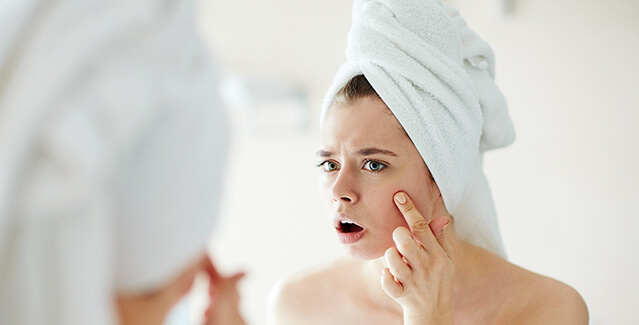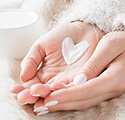5 Things You May Not Know Is Causing Your Acne

Pimples are not exclusive to teenagers, in fact, approximately 90% of the world's population claims to be affected by acne at some point in their life.
If you have already done all you could to manage your acne condition, you may want to investigate other factors that may cause your acne.
If you have already done all you could to manage your acne condition, you may want to investigate other factors that may cause your acne.
Makeup Brushes
While you may be using skin-friendly products, your skin may still end up with blemishes. Why? Your makeup brushes accumulate oils, dead skin cells, bacteria and dust, which may be deposited onto your skin, clogging pores and promoting growth of acne causing bacteria.
Wash your makeup brushes with a proper makeup brush cleanser at least once a week, especially if you have acne prone skin!
Wash your makeup brushes with a proper makeup brush cleanser at least once a week, especially if you have acne prone skin!
Hair products
Hair conditioning products may accumulate on the skin and clog pores if not properly rinsed off. Consider rinsing out your conditioner before washing your face and body to avoid hair conditioning products left on your skin.
If you use leave-in hair products, keep your hair away from your face and ensure these products are properly rinsed out daily.
If you use leave-in hair products, keep your hair away from your face and ensure these products are properly rinsed out daily.
Beware of "Non comedogenic" claims
Many manufacturers throw the term 'non-comedogenic' around loosely, making consumers think that it does not break anyone out. Thus, it is important to consider a trusted brand that has been dermatologically tested to make the claim.
Exfoliation too harsh for skin
Regular exfoliation can help remove dead skin cells which may otherwise clog pores and cause acne. However, overdoing exfoliation and / or using products that are too harsh on the skin can cause further irritation and dryness, which in turn increases inflammation, sebum production and breakouts.
To avoid or reduce damage, massage gently instead of scrubbing vigorously, limit frequency of exfoliation to once or twice a week, avoid harsh formulas that leave your skin red, irritated or painful, and use a gentle cleanser to complement your exfoliating regimen.
To avoid or reduce damage, massage gently instead of scrubbing vigorously, limit frequency of exfoliation to once or twice a week, avoid harsh formulas that leave your skin red, irritated or painful, and use a gentle cleanser to complement your exfoliating regimen.
Smoking
Smoking not only exposes your body to cancer and diseases, it also reduces the amount of oxygen in your blood. Since blood flows to your skin last, the reduced oxygen starves skin cells and causes them to die off. This will lead to premature ageing, dull skin tones and acne will take much longer to heal.
Apart from having a good skincare regimen and getting acne treatment, regular exercise, sufficient rest and reducing stress levels can help to regulate your sebum production and reduce acne. For mild to moderate acne, consider consulting your pharmacist for over the counter topical medication. For severe nodular or cystic acne, it is important to consult a doctor or dermatologist for treatment as over the counter remedies are not sufficiently effective.
Apart from having a good skincare regimen and getting acne treatment, regular exercise, sufficient rest and reducing stress levels can help to regulate your sebum production and reduce acne. For mild to moderate acne, consider consulting your pharmacist for over the counter topical medication. For severe nodular or cystic acne, it is important to consult a doctor or dermatologist for treatment as over the counter remedies are not sufficiently effective.
Recommended

Must-Have Products for Sensitive Skin
